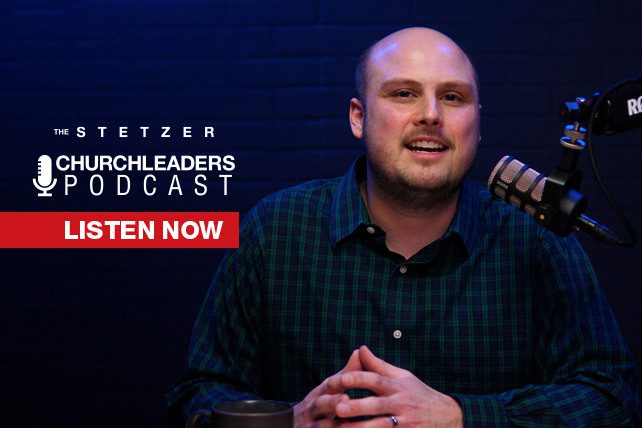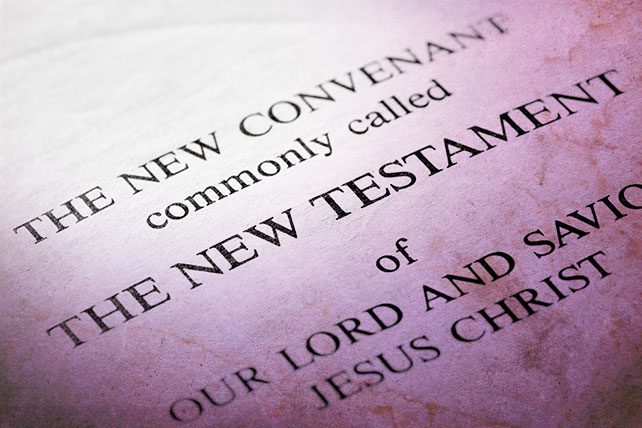Michael Martin is president and CEO of the Evangelical Council for Financial Accountability, or ECFA. He is passionate about helping churches and Christ-centered ministries maintain high standards of financial integrity, something that will be facilitated by the new leadership standard ECFA has just announced.
“The Stetzer ChurchLeaders Podcast” is part of the ChurchLeaders Podcast Network.
Other Ways To Listen to This Podcast With Michael Martin
► Listen on Amazon
► Listen on Apple
► Listen on Google
► Listen on Spotify
► Listen on YouTube
Transcript of Michael Martin Interview
Michael Martin on The Stetzer ChurchLeaders Podcast.mp3: Audio automatically transcribed by Sonix
Michael Martin on The Stetzer ChurchLeaders Podcast.mp3: this mp3 audio file was automatically transcribed by Sonix with the best speech-to-text algorithms. This transcript may contain errors.
Speaker1:
The sets are. Church Leaders Podcast is part of the Church Leaders Podcast Network, which is dedicated to resourcing church leaders in order to help them face the complexities of ministry. Today, the Church Leaders Podcast Network supports pastors and ministry leaders by challenging assumptions, by providing insights and offering practical advice and solutions and steps that will help church leaders navigate the variety of cultures and contexts that we’re serving in. Learn more at Church leaders.com/podcast network.
Speaker2:
Welcome to the Stetzer Church Leaders Podcast, conversations with today’s top ministry leaders to help you lead better every day. And now, here are your hosts, Ed Stetzer and Daniel Yang.
Speaker3:
Welcome to the Sister Church Leaders Podcast, where we’re helping Christian leaders navigate and lead through the cultural issues of our day. My name is Daniel Yang, national director of Churches of Welcome at World Relief. And today we’re talking to Michael Martin. Michael is the president and CEO of the Evangelical Council for Financial Accountability, or CFA. He’s passionate about helping churches in Christ centered ministries maintain high standards of financial integrity. And he’s joining us today to discuss the new leadership standard CFA has just announced. Now, let’s go to Ed Stetzer, editor in chief of Outreach Magazine and the dean of the Talbot School of Theology.
Speaker1:
Hey, it’s so good to have you and have this conversation with you. We’re we’re kind of excited because I think this is an important issue and an important time. We’ve already heard our guests introduce. But Michael there, I mean, we’re in a time when sometimes evangelical ministries have credibility questions. Sometimes they have credibility problems, sometimes they are on the front page of the newspaper and more. And so and a lot of them’s around financial. And we’re going to talk some about that. And but what I want you to tell us a little about the CFA, and I should just give disclosure to everybody that I’m, you know, the organization I’m a part of have been a member of the CFA. I’ve been I recommend the CFA. But I also got some questions. I think that probably other people are asking as well. So let’s start with kind of, if you wouldn’t mind, go back a little bit to history because it comes from a need in the past and then kind of move us into kind of what’s the purpose and how do you serve these ministry leaders?
Speaker4:
Yeah, absolutely. And Ed, it is great to be with you. Um, thank you for being a partner with CFA, who, like you said, um, just shares that same heart for ministry integrity and accountability and trust. And really, that’s what it all comes back to here at CFA, which is Evangelical Council for Financial Accountability. Um, and again, we have the privilege of being able to serve both Christian ministries as well as donors related to their needs around trust. So for Christian ministries to be able to help them maintain that healthy and trusted reputation, uh, so that they can more effectively reach the world for Christ. We know that trust is a huge fuel to helping make that happen. And then from the donor side, um, we see it all around us that as trust in institutions is on the decline. How do we as Christian donors, as we’re evaluating different giving, giving opportunities, say this is an organization where I can really feel good about giving generously and investing. This is an organization that operates by high standards of accountability. Cfa is there to help do that and uniquely from the place of biblically based standards of accountability. So there’s a new standard, a new initiative that we’re launching here at CFA.
Speaker4:
But even going back to the beginning, um, you know as well as I do many of the leaders who, uh, you know, were around at the time that CFA was formed. We have this new generation of leaders who may not even be aware of the full history of CFA. And so when we started 45 years ago, same thing. It all really began around the need for bold standards to help enhance trust. And so back at that time when CFA was formed, um, leaders came together around, you know, there were some fundraising scandals that were going on at the time. Um, but these organizational leaders came around and said, we need these bold, bold standards in areas like financial accountability and good governance. So CFA, even proposing this idea of organizations having audited financial statements at a time when virtually no nonprofits had audits or independent boards, when leaders would have said, we just think we’re accountable to God. So, um, that has been the, you know, history of CFA over all these years is to have those bold standards of accountability. And here we are. We’re getting ready to propose a new one as well. Good.
Speaker1:
I want to talk about that. Just a minute. I want to come back to the kind of the bold standards of accountability, because it doesn’t in some ways, it doesn’t seem bold. In 2024, it was bold a few decades ago that the idea that that your board shouldn’t be all of your family members, right? You can’t be an CFA. I always am I the only person who does the FCA CFA thing? And you are not.
Speaker4:
The only one.
Speaker1:
I love the don’t worry about it. So it’s thankful that if those who are watching on video, he actually has the logo behind his head. So I can say is CFA okay, so so those were I mean, the idea that there would be audits where I mean, those were bold standards, but but now I don’t know that those for most people, those would see they are kind of minimal standards. And yet in many places they’re they’re still not followed. And but and here’s my question for you, because I think some people have been around enough the last few years that they’ve seen some financial scandals erupt. And they’re often they’re not just. They typically don’t just tend to be a financial way. There’s typically multiple ways, but sometimes with CFA, uh, members. Um, so talk to us a little bit about that. Why, if that’s the case, why should we have confidence in those standards before we even get to the new standards. Let’s talk about the prior standards.
Speaker4:
Yeah, you’re exactly right. So, you know, I think, Ed, uh, for organizations, I mean, with the CFA having been around for decades now, these are time tested standards. You know, many of them have become, uh, sort of accepted standard practice. And I think that speaks to a lot of actually the success of CFA. But one of the ongoing values as well is not just to have a set of standards that organizations aspire to, but also an organization that would come alongside and help provide that layer of accountability for organizations as well. So in addition to the CFA standards, having a biblically based model of accountability so that as a donor, again, you have that confidence and assurance of saying there is this outside third party who is also working with this organization to make sure that they maintain that commitment to integrity. And one of the unique aspects of Cfa’s model as well is an annual accreditation renewal process. So it’s not just sort of this one time, hey, we made application with this organization, and it’s certainly not a rubber stamp in any way. It’s a very rigorous evaluation process. And then each year we’re working alongside our members to make sure that they’re maintaining those high standards of accountability.
Speaker1:
Yeah. Okay. So then let me just press a little bit more because, um, how then do sometimes, uh, ministries that have the E, C, f a logo on them end up doing things that then look financially or are in many cases financially inappropriate and, and, you know, it goes because you you’ve made the case that and I want this case. We need you to be thriving and successful. Um because and again, I think partly again, people have to have a little bit of historic understanding of just how Wild West this is. And for example, there’s a very famous story I was just sharing with somebody in Buffalo where this pastor in Buffalo was called, Churchill was his name. And you can Google Churchill Tabernacle and it’s the first, you know, it’s kind of the first. He owned the TV station like he owned the TV station personally and, and the building and everything else. And then, you know, when he falls, the whole thing collapses. And anyway, it’s called Churchill Tabernacle. It’s one of the most famous church failures you’ve never heard of. And like we would think today. Wait, the pastor owned the television station, the pastor owned the church. We would be shocked by that. But so but we’ve also come a long way from those days. You know, in the 40 plus years that you’ve been doing this, you have helped shape the conversation that ministries get audits. And they say that, like we my church, I mean, even even I would say even people that aren’t members of the CFA, they’ll get audits and they board governance is better. And but again, we’ve also had some failures with CFA logos on the front page that came out of those failures. Tell me how you because you’re new, right? So, uh, but tell me how you would say we should see that. And what does the CFA do when something begins to bubble up like that?
Speaker4:
Yeah, those are great questions. I appreciate the opportunity to be able to speak into that as well. And, you know, I think one thing that’s fair to acknowledge as well, and this is true even in the lives of our own personal accountability, if you think about it, is that, you know, having those guardrails in place, um, they are there to be preventative and to be proactive. But, um, even with the CFA standards, it’s not necessarily a guarantee of all the time perfection. Right? So we live in a fallen world. We know those things are going to happen. Um, same thing in the case of audited financial statements and organization, um, pursues having those audited financial statements. It’s not necessarily a guarantee that fraud is not going to happen. But at the same time, that doesn’t mean that organizations shouldn’t have these wise guardrails in place. And so the value add to, uh, for CFA or what we would contribute is in a situation to where, um, whether it’s proactively through cfa’s accountability processes, us each year, um, helping organizations identify if there’s a gap or a failure in compliance, our team helping an organization rise back up to that level, um, of accountability through the annual accreditation. Maybe it’s also one of our periodic check ins with members and being proactive in that way. Um, the other process that’s helpful as well, too, and this is something that all folks should know, is that on the CFA website, if you’re a donor, uh, to an organization as well, and you have a question or you have a concern about an organization’s, uh, adherence to the standard, there’s actually a process that you can go through as well. To share those questions, to share those concerns, to, um, work with CFA, uh, to clear up any of those questions, to help those be resolved. And that’s an important part of accountability as well, is, is being able to have that process in place. So that’s a unique way that CFA can help, uh, come in and, and really help strengthen the integrity and accountability for the good of organizations and for the good of donors.
Speaker1:
Yeah. So what happens if somebody goes in, you know, I serve by all university, which I, you know, and or, you know, let’s not use my example, but I think we have great governance here. But, um, you know, it’s like I got questions about the governance of an organization or an institution if it meets those standards. So you submit that. And then what does the CFA do? I mean, not not a specific circumstance, but what in general do they do.
Speaker4:
Yeah. So we do have a team of folks here on the CFA staff who are CPAs by background. So that’s another uniqueness of the CFA model as compared to, say, some of the other charity evaluators that might be out there is we have, you know, folks who are trained professionals who understand financial statements. They understand the CFA standards well, and, you know, they will be on the other side of any of those inquiries that come in or those questions. And, you know, and you probably appreciate, I mean, a lot of times it may even be just a question that needs to be answered or a misunderstanding. Um, many, many times that we may be involved in a situation, too. Um, it’s encouraging that donor, if they haven’t already, to have some of those questions directly answered by the ministry as well. And so we’re able to provide kind of that linkage and the relationship too, between a donor and an organization. Um, but at the same time, there are also, uh, protocols. There are processes in place where, um, if for some reason, again, we do identify that an organization is out of compliance with the CFA standards, we do have a redemptive model of accountability. There are some processes where and this is ultimately an CFA board determination, but there is, uh, an opportunity for a a suspension or even in some cases, a termination of membership, uh, where more time is needed, you know, for an organization to take that corrective action. And during that time, uh, the organization wouldn’t be displaying the CFA seal of accountability. And that’s something that donors can be watching for, right?
Speaker1:
Makes sense. Um, so for me, I was like, again, I think it’s important for people to understand just where we were and how far the CFA has taken us, but also to I remember talking to Rick Warren once, I don’t think I think he said this in other places. I’m not breaking a rule here. Uh, and, and we were talking about accountability groups, and there was a pastor we saw who had committed adultery. And and I think somehow it came up that this pastor was in an accountability group. And, and Rick Rick’s not dismissive of that, but he said he noticed that, like, if you’re in accountability or a group or not, if you’re going to want to have an affair, if there’s if there’s that, if that’s going to be what you’re going to do, you’re going to find a way to do it. And it does seem that the CFA standards, uh, give us guardrails that certainly weren’t there 40 plus years ago. Uh, but they don’t keep everybody from doing bad things. And I think that’s partly and again, I don’t think so. I’m encouraged by a few months ago, um, I think it was Warren Byrd reached out to me about your new leadership standards, and I and I liked it because I think it gives us some more ways to lean in on this. Because because, I mean, the people who make bad financial decisions are people who’ve made, uh, bad leadership decisions. There’s or or have gotten themselves into a situation or a cycle when that’s. Okay. So you commissioned this task force in 2021. Talk to us a little about, uh, what’s the task force purpose? And then we’ll kind of unpack a little bit about it, cause I know there’s some new, new standards have been added.
Speaker4:
That’s right. So, yeah, as we come together, uh, for this conversation, the the big news from CFA is that we did just announce a new accreditation standard for CFA members. And like you said, Ed, it’s a standard that’s called a leadership standard. And it really focuses on, uh, leader care, proactive care for the leader. How this task force came about is several years ago, as we started hearing more concern from Christian ministry leaders and also the donor community around some of the challenges in the leadership space, and not always necessarily an integrity failure, but even the number of leaders who are burning out, dropping out of ministry, some of those challenges in leadership and the impact that they’re having on trust. Um, and we had more of those folks coming to CFA and saying, hey, we recognize where CFA has been in the past, but now here we are in this day where leadership is really the trust issue of our day, if not one of the most significant trust issues of their of our day. Is there anything that CFA can do? In its unique role in the body of Christ to be able to help. And so that is how that task force was formed. And then there was research that was conducted, a lot of focus groups, conversations with members, and happy to share about what we learned. But that’s how that task force came about. That was three years ago. And then leading all the way up to the announcement of this new leadership standard. Yeah.
Speaker1:
So new standards, like, how long has it been since you added a new leadership standard?
Speaker4:
Yeah. The last well, the last SFA accreditation standard, uh, major revision that we made was ten years ago. And it was in the area of compensation setting, which is also one of those hot button issues and an important one related to trust for donors. So that was ten years ago. Okay.
Speaker1:
Okay. So, um, because part of the challenges is that, um, leaders I mean, the reason that we generally have financial failures is we have leaders who are failing. And sometimes it’s interesting. Sometimes they, uh, they get caught up in the own system that they create and they’re not sure how to deal with that. And so one of the things is that has to do with leadership. So the new leadership standard says this. I’m going to quote it. Every organization shall proactively care for its leader and support the integrity of its leader in conformity with the Cfa’s policy for excellence in supporting leadership, integrity. Uh, obviously those are carefully chosen words. Tell us about the wording of that standard, why you phrase it the way you did. Yeah.
Speaker4:
No, absolutely. And I will admit there is some technical nuance in some of the language, right, of every organization shall. Right. Um, that is really consistent with, you know, the language and the framing that other CFA standards. But yes, the focus really around the proactive care for the leader and the support for the leader’s integrity. I think, um, and ultimately the consensus of this task force, and as we did our research and conversations with members, is there was the acknowledgement of that reality that you mentioned before, which is, um, at the end of the day, a standard that would be like assuming CFA could step into being like a moral police or regulating the character or behaviors of ministry leaders. Um, that would not be fruitful. That would not be wise for a number of reasons. But if there is to.
Speaker1:
Say that that wouldn’t be the worst thing for somebody to do. But anyway, I get I get that it’s a little bit tricky because you’re you’re right, you’re this parallel, this this organization that comes alongside. But yes, I, I agree with you. That’s why we used to have denominations. And as the world’s become more non-denominational or disconnected, I get it. Okay, but keep going. Sorry. Yeah.
Speaker4:
No, absolutely. And just thinking of Cfa’s role in the body of Christ, how we can most effectively make a difference. It really came down to this idea of, yes, acknowledging that leaders individually, I mean, they bear that responsibility for their own integrity, their health. Um, but governance has also good board. Governance has also been that pillar of CFA as well over all of these years. And so building upon that, this idea that while the leader bears that personal responsibility in those areas, that the board of a ministry organization, they do have a unique responsibility and an opportunity to be able to come alongside a leader to help offer proactive care and support for the leader. Um, and so that’s sort of how.
Speaker1:
I’m assuming accountability. It says support the integrity of the leader. I think, you know, these failures of board governance have been so widely seen. So how does that all relate together? The accountability of the care? I know they’re they’re all connected. So how does that connect in the new standards, or is that in the old standards that you’re adding to. Tell me about that. Yeah.
Speaker4:
No, there absolutely is a connection. And so in that one sentence statement, there’s also a cross reference to what we call the CFA policy for excellence in supporting leadership integrity that’s embedded in commentary to the standard. And so there are some specific steps there as well, um, around making sure that we’re establishing biblical character expectations for leaders through something like a code of conduct. Now, that may sound basic in some ways, but there’s a lot of organizations that haven’t actually even taken a step like that to be able to work alongside a leader and say, we’re establishing biblical character expectations for the leader of the organization. So that is one component. One objective piece of how the standard is measured is making sure organizations have adopted those. And then also personally, where I really, again, feel like the gold is buried here, is also in the requirement that an organization’s board, or it could be a board approved committee that at least on an annual basis, we’re having conversations with the leader as well to say, hey, how can we also come alongside and be proactive? And in light of the season of ministry that you’re in, in light of the challenges that you’re facing, how can we come alongside and help support you as a leader in your integrity holistically and the holistic sense as a whole person spiritually, mentally, physically, emotionally and all of those pieces? Because the more that we’re able to invest there, hopefully we’re able to get ahead of even potentially some of those issues that might manifest later. In terms of the the behavior of a leader.
Speaker1:
Okay. So, um, and I and I think, you know, having seen leaders go off the rails, um, I think that that is I mean, there are warning signs and I got to tell you, there’s lots of blame to go around. I think, um, you know, I think, you know, failed leaders, you know, now we and we watch these, these movies and they have, like an origin story of the of the. Well, there’s an origin story to leadership failures and almost all the leaders that that I’ve seen fail. Um, and then there’s people come alongside and enable or get caught up in or don’t address. And that’s where board failures come in. And then there’s and so, so moving these things up to address the, uh, the sin in all of us if we’re individual sinners sins in our systems as well. Um, then the question is, how do we best do that? So, so the new standard is addressing some things. I mean, it’s a new standards that the, the current standards are not. Give me a little I mean, I read one of them, but give me some of the details of things that the, the new standards addressing that the current standards are not.
Speaker4:
Right. Yeah. So up to this point, we haven’t had any standard that’s really focused squarely on the leader and supporting healthy leadership. Now, there have been some other uh, because sometimes we’ll get the question too, of, well, how does this relate to financial accountability? And in Cfa’s mission. And so with many of the standards, it’s okay in areas of things like appropriate transparency and financial transparency, ethical fundraising, all of those as financial issues, um, those are current standards, but then also some non-financial standards as well. That also lay a foundation for the rest of the financial accountability standards. So things like, uh, commitment to an evangelical statement of faith, you know, that’s got that’s standard one. That’s where it all starts. And then following up on that responsible board governance, which is our standard number two currently this new standard on leadership, we feel like it’s in that same vein as the commitment to the evangelical mission and also responsible board governance. Supporting healthy leadership really lays the foundation a strong foundation for the rest of the CFA financial accountability standards.
Speaker1:
Yeah, leaders who have failed in areas of their integrity will often find ways around even or seek to find ways and sometimes successfully find ways around their board governance, and particularly if they’re good at it. And that’s the that’s when it gets really, really bad and really problematic. So in a sense, I mean, we can all acknowledge that. Again, back to that Rick Warren thing about being in an accountability group. If I if I want to, I can go to accountability group every week and tell people I’m not doing something. But if I’m secretly trying to do something, it’s it’s hard to address some of those things. So these are, you know, even even these standards, you kind of mentioned that these are these are they have flexibility and not highly prescriptive. So I want I feel the weight of failures and scandals and the both the harm to the Christian witness, which is deeply important to me also to the, you know, the failures and the and the blast radius that hurts so many people in some of these larger church failures. Um, so if that’s the case, um, what are some ways to meet these standards that you think by meeting these standards will make these ministries better?
Speaker4:
Yeah. And I might just add one other point to, to kind of, yeah, what you’re sharing earlier about, um, in some cases failure being inevitable. In a sense, I think it is important to, to distinguish that CFA accredits organizations and we don’t we don’t accredit individuals. And so, um, in terms of.
Speaker1:
Great if somebody could accredit individuals, but that’s another story for another day. Okay.
Speaker4:
All right. We’ll leave. We’ll leave that to someone else. Um, but no, it it is again, um, in terms of how we would objectively measure compliance, it is just making sure that organizations are taking those proactive steps, um, to help support the leader in those areas and following those minimums. So I just wanted to make sure to that point, too. Yeah. The accreditation is for organizations. Okay.
Speaker1:
So so then with that being said, so how would an organization which again, I really need it to impact individuals because I think that’s where again, systems themselves can become problematic. But how would these new standards again, it’s not highly prescriptive, but how are people going to fulfill this standard and how is it going to make the organizations better so that individuals, well, function more effectively in a healthy organization?
Speaker4:
Yeah. Well, I think there’s a couple points there. You know, one is, uh, Ed, you had mentioned that the task force that was formed and all the research that’s been done, I think one of the things that is so striking and again, this comes back to the tone, uh, the, the tone of care for the leader that’s here in the standard is one of the things that was just so loud and clear is the unique pressures, the demands that ministry leaders face and often in isolation, which only makes some of these problems worse and compounds. And so, um, just speaking to the difference that this standard could. Make is for organizations to point to and say, okay, it’s even a requirement of our, uh, CFA accreditation for this conversation to need to, to take place. And so, um, we’ve crafted the standard to in a way where, um, it’s really scalable because with over 2700 accredited churches and ministries across the country, you know, we range from some of the largest, you know, most household names in Christian ministry to many of the smaller, uh, more modest sized ministries as well. So the standard needs to be done in a way where it’s really scalable and so different approaches that can be taken. I mean, if you’re a, uh, one of those smaller ministries and you just have a handful of people on your board, I mean, this could be even as simple as, um, identifying, hey, who is that board member who serves with you? Who maybe their spiritual gift is more pastoral.
Speaker4:
Um, appointing that person to have those ongoing conversations with the leader, the check ins with the leader, and the incredible difference that even something as simple as that might make for larger organizations. And as we’ve done some of these focus groups and even looked at models that have been successful and some of the larger ones ed2, they might say, okay, the full board or, um, a certain group is not necessarily the right ones to to tackle this, but they may even appoint like a special committee on the president or a president’s care committee, um, who’s appointed for that role to be able to be an ongoing conversation with the leader. Some of the most successful models that we’ve seen as well, have been ones that aren’t even focused just on the leader, but also involve the leader spouse, um, and recognizing the importance of that as well. Um, so, um, again, there are certain minimum criteria in order for organizations to meet the standard, but there’s also going to be a lot of freedom and flexibility within that framework to adapt depending on the size and the needs of the organization.
Speaker1:
Yeah. And you know what some people are going to say. Some people say caring for the leader is not what we need. We need to, you know, put a lid on the leaders. We need to, you know, and you get that there’s always this tension. But I got to tell you, having seen people get caught up in the machine that they created, you know, the the, you know, the desires that drive them, I got to grow and build a great church. Maybe the desires that drive them eventually became the demons that drag them down. Uh, I’ve seen this, and I would see this, this intersection point and something. I was talking to Phil Ryken, uh, president of Wheaton College when he was the pastor at, uh, uh, in Philadelphia. He said that the elder board was the elder board. They were the governance. And, you know, Presbyterians have a much higher, you know, my, my denomination, sort of Wild West on governance. But Presbyterians, the elders, the session can have a much higher governance. But there was also, I think he said, two people on that session whose job it was to provide pastoral care for him as a leader. And I think that we can have a lot less villain origin stories of some pastors. If some pastors had people speaking into their lives earlier in the process, so that they might avoid ending up making the small, bad decisions that become the medium, bad decisions that become the big bad decisions as well. Anyway, I shouldn’t. I’m this is your interview and I’m asking too many questions.
Speaker4:
Hey, no, it’s it’s it’s so true. And you’re right that I think one of the things we’ve seen too is a lot of times, board members, uh, maybe even have good intentions. Uh, they just don’t know where to start. They don’t know how to strike up a conversation like this. And so prayerfully, the the CFA standard will kind of be that impetus, the resources. Uh, some of the training that we’ll offer will be able to help equip board members in that space. And then I also, as you were sharing too, I was thinking of some of the findings from our research, too, showing there was a pretty significant gap between the reality in the view of the leader of an organization, in terms of how the board is providing any kind of care and support for their integrity, versus the views of board members, there was just this significant gap between what leaders said was, you know, in their reality versus what board members thought they were doing. Yeah.
Speaker1:
So good. Um, I have a, uh, a I remember I tweeted one, I wrote an article about this once. I was at Wheaton at the time, and I said, I have a boss. Um, her her name at the time was, uh, Margaret Diddams. I have a board. The Billy Graham Center had a board, uh, and they hold me accountable. And so I’m really like, I’ll tweet after our Biola board meeting. Uh, here we have a university board, but I have a boss of provost who’s the boss. Um, and I will tell you, as somebody who, uh, who loves to lead, who loves to make a difference for the gospel, I think it’s a gift to have somebody to whom I’m accountable. Now, there’s all kinds of people out there. They want you to be accountable to them. Uh, but I have someone to whom I’m accountable. But in most of these kinds of situations, particularly in the wild west of evangelical entrepreneurial ism, I mean, you have to make a choice to be accountable. And I would just say, we’re coming to the end of our podcast. I would. Say if you’re a pastor or church leader. I, um, I’ve seen just the, the the on the side of the road leader after leader who I saw start. Well I said On the rise and Fall of Mars Hill podcast.
Speaker1:
Their, their uh, their character elevated. Excuse me, their ability elevated them to positions their character was not ready to handle. And and I’m of the view that, again, particularly historically, we’ve come a long way with the CFA. Um, it’s not perfect. I think people will and do find ways to do bad things. Uh, and but I think one of the ways we address that is, is help people do better in relationship with boards and leaders so that we have healthier structures, unhealthy structures, produce unhealthy and often create those origin stories that that we look back and say, oh, we should have done something then. So this is one way to do something then. But I know now we’re early on interviewing this and, you know, full disclosure, um, you guys shared some of these things with me beforehand, um, kind of in the process. Not just me, but you’re getting input, but you’re still receiving input. This this, uh, this podcast comes out right after. Now, if you listen to this podcast two years from now, you know, we know podcasts live forever. But if you’re listening to this podcast in early 24, you’re still seeking input. So how would people find out more information and give input of this as well?
Speaker4:
Yeah. So the place to go to is CFA org slash leadership standard. Try to make that as easy as possible CFA org slash leadership standard. Uh you can see the full standard there. Um, the commentary to the standard as well. Some of these key insights FAQs. Um, but yes, we’re also in an important window right now, which again, this is a standard that’s been inspired by CFA members. It has been prayerfully considered, um, task force, you know, and research all of these different pieces kind of leading to where we’re at today. But we are still in that phase two of listening, and we want to be able to hear feedback. We also want to be able to hear from folks who would say, you know, as I’m thinking about just the very practicals like we’ve talked about on this podcast, the very practicals of what does this look like to implement this within our unique organization, our unique context. We also want to be able to hear from folks as well, to help speak into those future resources that will be coming from CFA. And I just I thought of one other thing, too, as as you were sharing earlier about just the impact of, of this standard and what you’ve seen as it’s been kind of played out. And I’ll never forget just talking to one younger leader. And he was in the midst of I think he had recently just kind of come into his role. And there was a transition from a long time leader, and this younger leader was advocating for more of this accountability, more of this, um, even care from the board. And he had some, uh, board members who had been there for a long time saying, hey, what are you doing? Why are you, you know, inviting all of these pieces? And you know what that leader, this young leader said, he said, I feel safer, um, with this kind of accountability, this kind of environment, uh, of the board being able to come alongside and help support me in my integrity. So we’re prayerful that other leaders will experience that as well.
Speaker1:
Yeah. And I will tell you that, you know, I don’t think, uh, Michael Martin, I’m thankful for you. I’m thankful for the CFA. Um, I don’t think that you’re going to be able to fix every problem, but I do think that to see where we’ve been from 45 years ago till now, to see that this has been a tool that’s been helpful for a lot of people, um, I think I think and ultimately to in a, in a the CFA is not your denomination, it’s not your board. So you need to have structures and systems like that. And then the CFA is a tool to help you to say, well, this is what would look like if we’re doing that standards. Now, if you and your board are saying this is what it looks like to get around those standards and then you’re in a different place, but I think that this can be a helpful tool. And I’m thankful for you. I’m thankful for you leaning in and listening to some of the challenges of the last few years, and for being a tool and toolbox for churches and ministries that want to be more effective in, uh, well, in healthy, long terme leadership with integrity personally and with finances and more. So thanks for taking the time to talk with us today.
Speaker4:
Hey. Thank you. It’s been an honor and we’re prayerful that it will it’ll make a real impact.
Speaker3:
We’ve been talking to Michael Martin. You can learn more about him and the Cfa’s new standard at CFA. Org. Thanks again for listening to the Stetzer Church Leaders podcast. You can find more interviews, as well as other great content for ministry leaders at church Leaders compered. And again, if you find our conversation today helpful, I’d love for you to take a few moments. Leave us a review that will help other ministry leaders find us and benefit from our content. Thanks for listening. We’ll see you in the next episode.
Speaker2:
You’ve been listening to the Stetzer Church Leaders podcast for more great interviews as well as articles, videos, and free resources, visit our website at Church leaders.com. Thanks for listening.
Sonix is the world’s most advanced automated transcription, translation, and subtitling platform. Fast, accurate, and affordable.
Automatically convert your mp3 files to text (txt file), Microsoft Word (docx file), and SubRip Subtitle (srt file) in minutes.
Sonix has many features that you’d love including powerful integrations and APIs, generate automated summaries powered by AI, transcribe multiple languages, enterprise-grade admin tools, and easily transcribe your Zoom meetings. Try Sonix for free today.
Key Questions for Michael Martin
-Where did the ECFA come from, and how do you serve ministry leaders?
-What should people think when ECFA-approved organizations have some type of failing?
-What happens when someone reports a concern about an organization to the ECFA?
-What is your newly revealed standard addressing that your current standards are not?
Key Quotes From Michael Martin
“One of our ongoing values is not just to have a set of standards that organizations aspire to but also an organization that would come alongside and help provide that layer of accountability for organizations as well.”
“One of the unique aspects of ECFA’s model is an annual accreditation renewal process. So it’s not just sort of this one time, ‘Hey, we made an application with this organization,’ and it’s certainly not a rubber stamp in any way. It’s a very rigorous evaluation process.”
“Even with the ECFA standards, it’s not necessarily a guarantee of all the time perfection, right? So we live in a fallen world. We know those things are going to happen….But at the same time, that doesn’t mean that organizations shouldn’t have these wise guardrails in place.”
“We do have a team of folks here on the ECFA staff who are CPAs by background. So that’s another uniqueness of the ECFA model as compared to, say, some of the other charity evaluators that might be out there.”
“If, for some reason, we do identify that an organization is out of compliance with ECFA standards, we do have a redemptive model of accountability.”
















 In ministry, what is a healthy approach to embracing the unique gifts and voice that God has entrusted to us without overshadowing what God longs to do in us, through us, and even in spite of us? In this week’s conversation on FrontStage BackStage, host Jason Daye is joined by Charles Martin. Charles is a New York Times and USA Today best-selling author. In fact, one of his novels was optioned and turned into a major motion picture. Charles is a devoted Christ-follower and a fellow traveler on the pilgrimage of faith. Charles’s most recent book, titled “It Is Finished,” is based on a true story with which we’re all familiar. Together, Charles and Jason look at letting God fully use what is uniquely you while avoiding the temptation to elevate yourself beyond what God desires. What does that balance look like in our lives in ministry? Charles then takes us backstage and shares some honest insights about navigating disappointments, criticism, critiques, and fear.
In ministry, what is a healthy approach to embracing the unique gifts and voice that God has entrusted to us without overshadowing what God longs to do in us, through us, and even in spite of us? In this week’s conversation on FrontStage BackStage, host Jason Daye is joined by Charles Martin. Charles is a New York Times and USA Today best-selling author. In fact, one of his novels was optioned and turned into a major motion picture. Charles is a devoted Christ-follower and a fellow traveler on the pilgrimage of faith. Charles’s most recent book, titled “It Is Finished,” is based on a true story with which we’re all familiar. Together, Charles and Jason look at letting God fully use what is uniquely you while avoiding the temptation to elevate yourself beyond what God desires. What does that balance look like in our lives in ministry? Charles then takes us backstage and shares some honest insights about navigating disappointments, criticism, critiques, and fear.











